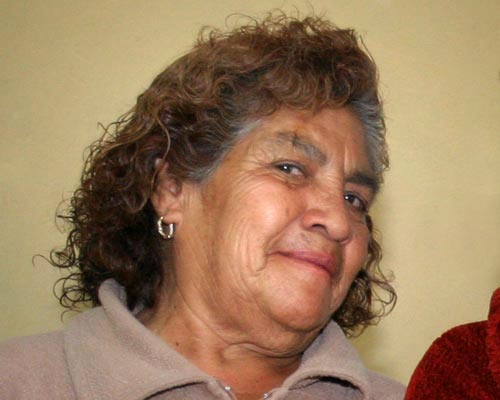After visiting the tomb of her daughter in Guadalajara, my mother-in-law Luz sits quietly in the backseat with her sister Esperanza. The high-beams guide us in the darkness. Rosario takes advantage of the two-and-a-half hour drive to León, Guanajuato to interview her aunt about her youth. “TenÃa ud. muchos novios? Did you have a lot of boyfriends?” she asks. “Uy, sÃ. Oh yeah.” They both chuckle. Esperanza continues, explaining how she dated three boys at the same time, one being her future husband. Once, she was out dancing with one boyfriend, and another boyfriend arrived. Her friends quickly alerted her “Ahà viene José Here comes José” so she could excuse herself from the dance-floor.
Rosario asks her aunt how she eventually married José. “Por accidente! By accident!” Esperanza explains how different times were back then. She was a good girl who held hands but didn’t kiss. One day, she got angry with a neighbor and the two exchanged heated words. Later, Esperanza’s father, a man who rarely spoke to her whatsoever, asked her if what the neighbor told him was true. She reluctantly agreed. What she didn’t know was that the neighbor actually said Esperanza and José were having inappropriate relations. Her father obliged José to marry Esperanza. She liked José but had no interest in marriage at age 16. Her father insisted. The Catholic train couldn’t be stopped and the two were married. It wasn’t until several years later, while talking with her mother, she realized what had happened.
But the story didn’t stop there. She describes José’s drinking, the beatings, the 20 pregnancies, and their first kiss after over 50 years of marriage. After an hour of her stories, all those telenovelas with ridiculous plot turns somehow seemed a little less ridiculous.
Meet Esperanza:

6 replies on “True Mexican Novelas”
Wow, my heart was wincing just reading that. She’s a hell of a lot tougher than I to come out of it all.
Oh, Nathan. This story is so beautifully told, though agonizing in it’s entirety. My eyes filled with tears (again! you’re good!). It reminds me of something that might be written by Gabriel Garcia Marquez.
More, please, from your life.
Oh Esperanza! She’s the one, from all my aunts, who got the worst beatings from her husband, the man whom I always refused to call uncle. It’s ironic how, as I was interviewing my aunt, she started by narrating how José, back when they were dating, used to visit her every night, knock on her window and wait quietly outside until she opened the window. The both of them would fall asleep talking and holding hands through the window, she inside her house, him out on the street. It sounded pretty romantic! But then, after telling us about how they ended up getting married by accident, she told us about one of the toughest beatings she ever got from him, it was dramatic! I couldn’t imagine José as a romantic man at all, I grew up hearing horrible stories about him beating my aunt and cousins. So, after the interview was over, I was tempted to go to my aunt’s house and interview José, but I was not sure if I was ready. Maybe next time we visit my hometown.
I love digging in to the stories of my grandparents and older family members. I’m not sure if they’re as dramatic (and sad) as that of Rosario’s t??a, but they definitely have something in common. They show their incredible strength.
Rosario, it’s wonderful that you are so committed to learning the stories of your family…and Nathan, you write about them beautifully. Esperanza has a real spark in her eyes, despite all she’s been through.
You two are amateur anthropologists. Have you guys ever read Oscar Lewis’s “Five Families”? I used it in one of my classes this past semester. I think you would both find it fascinating given your own collection of life histories.